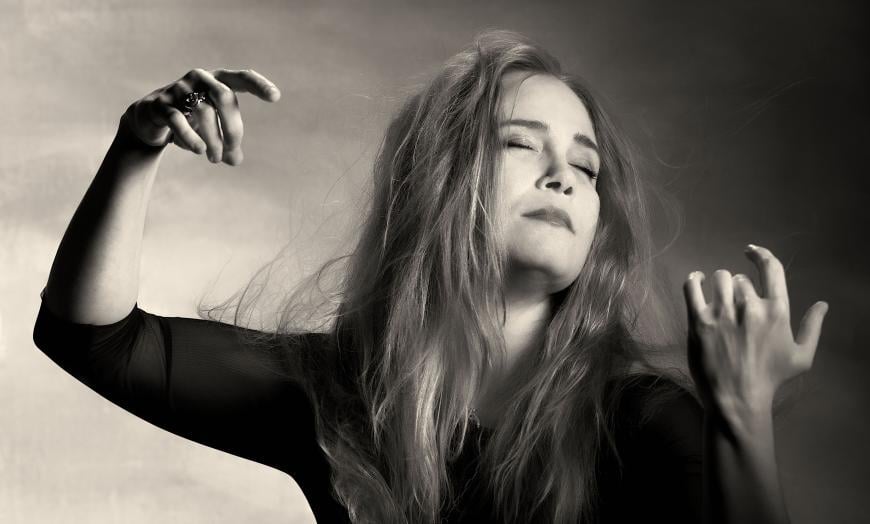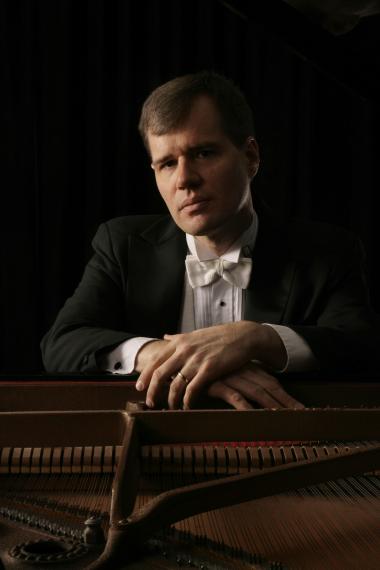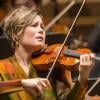
It’s a little-known fact that the Founders Room, the elegant vaulted space in Frank Gehry’s Walt Disney Concert Hall, was originally conceived as a second, more intimately scaled auditorium for the performance of chamber music. But money talked, and music walked.
One can only imagine the gem-like quality that Wednesday night’s Colburn Celebrity Recital by violinist Leila Josefowicz and pianist John Novacek might have possessed had it been performed in the hall of Gehry’s dreams. Instead, when the two musicians walked onstage, they were dwarfed by the scale of the auditorium, which felt even larger because it was only about one-third full. They surely must have noticed.
The program — which the duo also presented at San Francisco’s Herbst Theatre the previous weekend — was skillfully varied: Claude Debussy’s Sonata for Violin and Piano in G Minor, Karol Szymanowski’s Mythes “Trois Poèmes,” Erkki-Sven Tüür’s Conversio, and Igor Stravinsky’s Divertimento, from his ballet The Fairy’s Kiss.
You could not ask for a more cohesive pair of musicians than Josefowicz and Novacek. You could almost say they are musically joined at the hip, their communication is so intuitive.

The choice to begin with Debussy’s sonata was an excellent one, as its three movements progress from moonlight and shadows to more frantic Spanish-influenced exclamations that build to the “Trés animé” Finale.
Szymanowski’s Mythes is structured as three contrasting mini tone poems inspired by Greek myth. Heavily influenced by impressionistic tonal washes, the piece then rises into gushing, romantic waves of melody that verge on schmaltz. The virtuosic parts have made it a recital favorite, and Josefowicz and Novacek gave full voice to the romanticism while allowing the quieter passages an aura of the poetic.
After Arvo Pärt, Tüür is probably Estonia’s best-known composer. His career made an interesting shift when he went from performing as a rock ’n’ roller to working as a post-minimalist composer. The lengthy opening of his Conversio seems like a jaunty piece of rather traditional minimalist patterning built on an accented pulse, influenced as much by the Beatles as by the minimalist religiosity of Pärt.
Then, like a marriage that’s hit the skids, the violin and piano begin to argue in ever-increasing slashing staccato attacks that almost cause blood to flow. Josefowicz and Novacek clearly took delight in leading their audience down a romantic garden path that turns into a battle to the death.
Like a good fireworks display, everything built to a grand finale, in this case Stravinsky’s Divertimento, collaged from his ballet The Fairy’s Kiss, based on a story by Hans Christian Andersen.
Conceived as an homage to Tchaikovsky, the work pulses with energy and bravado, passages and exchanges between the keyboard and violin echoing songs and piano pieces from Tchaikovsky’s playlist. Stravinsky’s personality and vocabulary are unmistakable, however, particularly in the opening Sinfonia, whose spirit evokes the joyous chaos of “The Shrovetide Fair” from Petrushka.
The piece allowed Josefowicz and Novacek the chance to pull out all the stops they’d held in reserve in a flurry of full-force virtuosity that rose to a pyrotechnical conclusion.
Any hope for a surprising encore gave way to a sentimental transcription of Charlie Chaplin’s “Smile.”



